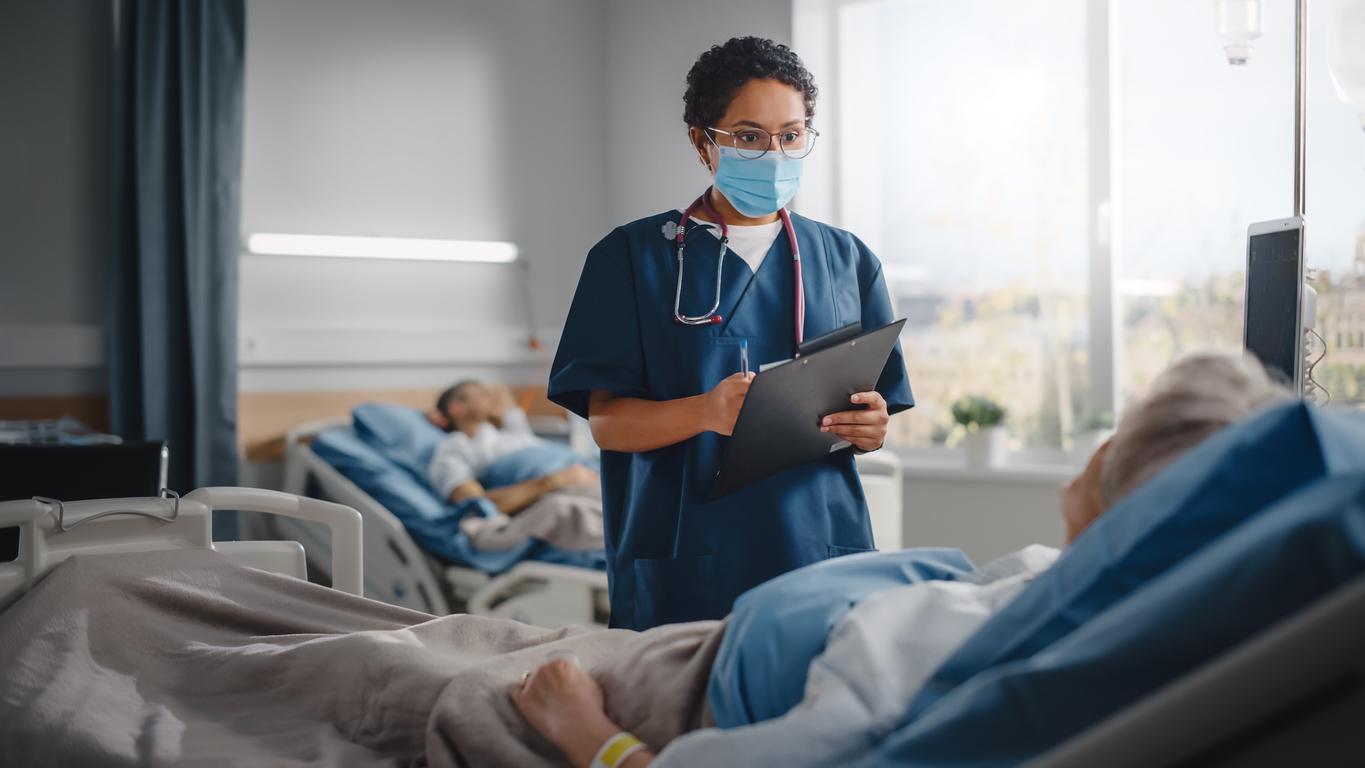People who have developed a severe form of the coronavirus would have a greater risk of developing a tumour.

- 2.2% of patients hospitalized with a severe form of Covid-19 were diagnosed with cancer in the following months.
- The risk of being diagnosed with cancer after discharge from hospital was 31% higher in the group of adults admitted to a hospital facility.
- The risk was significantly higher for kidney, blood, colon and lung cancers.
“No study has yet investigated whether a severe form of Covid-19 represents a marker of undiagnosed cancer”, said French and Swiss researchers. This is why they carried out a study published in the journal Scientific Reports. To understand the possible link between the coronavirus and the risk of cancer, the scientists examined the medical records of 41,302 patients hospitalized in the intensive care unit due to Covid-19 as well as those of 713,670 adult controls not hospitalized for SARS- CoV-2.
Cancer and Covid-19: a stronger association in women and those under 60
According to the results, 897 hospitalized patients (or 2.2%) were diagnosed with cancer in the following months, compared to 1.5% in the control group. In addition, the risk of being diagnosed with cancer after discharge from hospital was 31% higher in the hospitalized group than in the control group. “A similar overall trend was observed when the competing risk of death was taken into account,” can we read in the works. Patients admitted to hospital had a significantly higher risk of developing kidney, hematological, colon and lung cancers. “This suggests that severe SARS-CoV-2 infection may represent a marker for undiagnosed cancer.” The authors revealed that the strongest association, during the first three months, was found in women and in people under 60 years of age.

Severe Covid: more monitoring of “patients coming out of intensive care or intensive care”
The reasons why infection with Covid-19 might increase the risk of cancer are not yet clear. According to Pr Mahmoud Zureik, director of Epi-Phare and author of the research, no “causal effect” between the two diseases has not been established. “The state of immunosuppression can perhaps hide an underlying cancer not yet detected”he explained to Doctor’s Daily. Thus, the professor recommends closely monitoring the victims of severe forms of the coronavirus. “Patients leaving resuscitation or intensive care after severe Covid already have an increased risk of mortality. It is therefore useful to monitor them, especially since they are exposed to sequelae, in particular pulmonary”.















